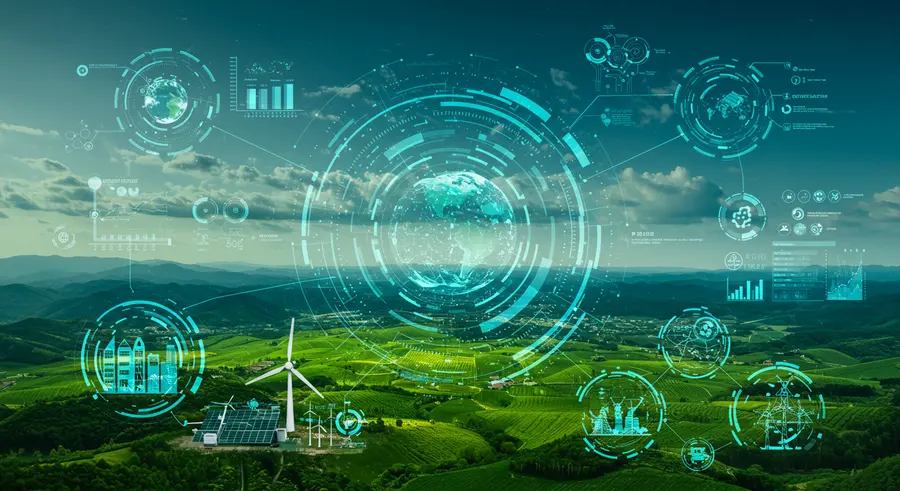The Future of Digital Twins: Sustainable Development and Environmental Impact

Introduction: A Glimpse into Tomorrow
Digital twins are no longer a futuristic concept; they are a present-day reality rapidly transforming industries. However, their true potential extends far beyond operational efficiency and predictive maintenance. In the coming decades, digital twins are poised to play a pivotal role in addressing some of humanity's most pressing challenges, particularly in sustainable development and environmental preservation. By creating highly accurate virtual replicas of natural systems, urban infrastructures, and energy networks, we can simulate, analyze, and optimize our interactions with the planet in unprecedented ways.
Digital Twins for Smart and Sustainable Cities
One of the most impactful applications of future digital twin technology will be in the development of smart and sustainable cities. Imagine a city with a complete digital replica, where every building, traffic light, utility network, and green space is mapped and monitored in real-time. This "urban digital twin" would allow city planners to:
- Optimize Energy Consumption: Simulate different energy scenarios, manage smart grids, and integrate renewable energy sources efficiently to reduce carbon footprints.
- Improve Resource Management: Monitor water usage, waste generation, and air quality to implement smarter resource allocation and pollution control measures.
- Enhance Urban Mobility: Analyze traffic flows, simulate public transport routes, and optimize infrastructure to reduce congestion and emissions.
- Plan for Climate Resilience: Model the impact of climate change events (e.g., floods, heatwaves) and develop resilient infrastructure strategies.
Projects like Virtual Singapore are already demonstrating the early stages of this vision, offering a platform for urban planning, disaster management, and public engagement.
For more insights into how cities are leveraging technology, you might find information on Smart City initiatives on Wikipedia helpful.
Environmental Monitoring and Conservation
Beyond urban environments, digital twins offer transformative capabilities for environmental monitoring and conservation efforts. Digital replicas of ecosystems, forests, agricultural lands, and even oceans can provide invaluable data for understanding natural processes and human impact:
- Precision Agriculture: Digital twins of farms can optimize irrigation, fertilization, and pest control, leading to reduced resource consumption and higher yields with minimal environmental impact.
- Forest Management: Replicate forests to monitor tree health, growth rates, and carbon sequestration, aiding in sustainable logging practices and reforestation efforts.
- Oceanic Digital Twins: Model ocean currents, marine life migrations, and pollution spread to develop better conservation strategies and manage marine resources sustainably.
- Climate Modeling: Integrate vast datasets to create highly sophisticated digital twins of regional or global climate systems, improving climate predictions and informing policy decisions.
Challenges and the Road Ahead
While the prospects are exciting, realizing the full potential of digital twins for sustainability comes with challenges. These include:
- Data Integration and Standardization: Merging vast, diverse datasets from various sources (IoT sensors, satellite imagery, historical data) requires robust frameworks.
- Computational Power: Simulating complex environmental systems demands significant computational resources and advanced algorithms.
- Interoperability: Ensuring different digital twin platforms and models can communicate and share data seamlessly is crucial for holistic solutions.
- Ethical Considerations: As with any powerful technology, privacy concerns, data security, and the potential for misuse must be carefully addressed.
The journey towards a truly sustainable future empowered by digital twins will require continued innovation, cross-disciplinary collaboration, and a commitment to responsible technology development. The convergence of AI, IoT, cloud computing, and advanced simulation will continue to push the boundaries of what's possible, allowing us to build a more resilient, efficient, and environmentally conscious world.
Learn more about the broader impact of technology on society at The World Economic Forum's insights on the Fourth Industrial Revolution.